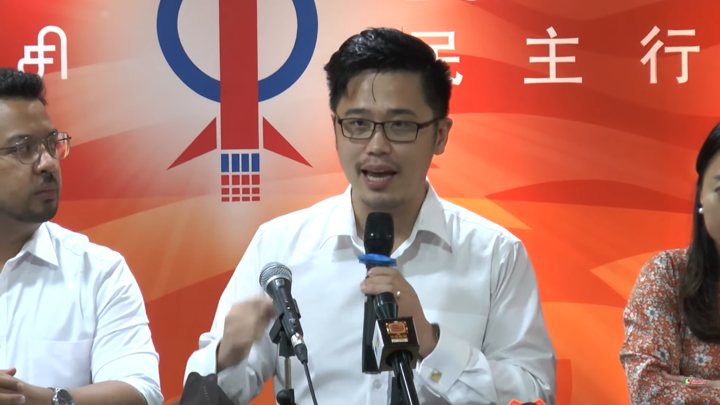KUALA LUMPUR, Sept 28 – DAP lawmakers are pushing for a care economy agenda in Pakatan Harapan’s (PH) 15th general election (GE15) manifesto, a plan that would pour billions of ringgit to tackle Malaysia’s rapidly ageing population.
DAP will present its care economy proposal, which seeks to professionalise and expand aged care, to PH’s presidential council next week, said Howard Lee Chuan How, state assemblyman for Pasir Pinji in Perak, who is also a member of DAP’s GE15 National Action Plan Committee.
“The care economy is a big part of the PH agenda. We will present it to the PH Presidential Council next week. I don’t see resistance to it,” Lee told a media conference here today.
DAP is proposing a National Care Economy and Ageing Community Preparedness Plan dubbed “Siaga Jaga”, which aims to professionalise the care sector, build capacity and training to achieve an ideal caregiver support ratio, and promote tax support and incentives for employers to hire and train older persons, among others.
To kickstart the care economy, DAP proposes a RM10 billion allocation from the federal government – RM5 billion, RM3 billion, and RM2 billion – over a three-year fiscal period to increase the number of care facilities, care training facilities, and infrastructure for care.
Lee said other financing options such as co-payments and cross-ministry contribution can be explored to fund subsidised public care services and government-paid allowances for public and private employees who need to provide care for their parents.
“Too often in our society, we hear, see – and as representatives and frontliners – meet and assist Malaysians, young people who have to choose between working and caring for their parents.
“This is not a humane choice. This should not be necessary and should be avoided. We cannot allow people to choose between one and the other,” Lee said.
Care Economy Inevitable As Voters Grow Older
Liew Chin Tong, Opposition leader in the Johor state assembly and DAP National Election Director, hopes that the care economy agenda will inject “new breath” into the country’s political discourse.
“Discussions on politics have always focused on partisanship, but the goal of politics is good policies. With strong policies, we can have a plural and prosperous society. To achieve this, we need to discuss and debate about policies, not partisan divisions,” Liew said.
The care economy agenda can also promote new ideas to develop the national economy.
“Our economy needs new ideas. We cannot simply depend on old economic models. Our current economic model and ideas are unchanged, which prevents us from addressing current needs and challenges, including low female labour force participation.
“Low female labour force participation can only be dealt with by having a strong and comprehensive care economy,” Liew said.
Segambut MP Hannah Yeoh, who served as deputy minister at the Ministry of Women, Family and Community Development under the PH government, said in 2020, the female labour force participation was only at 55.3 per cent. The target then was 56 per cent.
That same year, the male labour force participation was 80.6 per cent.
“This care economy plan is important if we want to raise the number of women and men in the workforce.
“Right now, the figure is low because they have to look after their children or parents. One of the spouses will have to resign from work to do this. So, if we want to raise the 55.3 per cent (of female labour force participation), there must be a care infrastructure for the elderly.
“For us to prepare, we need to plan. But to move towards that goal, we need to ensure there is infrastructure in the form of an agency that could work on a proper guideline.
“Currently, there is only one division under the Social Welfare Department (JKM). JKM has three divisions – one for children, one for the elderly, and another for the disabled. But the needs of these three groups are huge. One division is not enough, hence the need for an agency for each of these groups, including an agency for the elderly,” Yeoh said.
Lee called on all political parties to initiate discussions and debate the silver economy. “There is political interest in this,” Lee said.
“If you look at the statistics, Malaysia’s adult population is 22 million. And some studies show that more than 5.1 per cent of the adult population are either experiencing, have experienced, or are required to perform the role of an informal caregiver – and there are different stages to this. Some are doing it full-time, and others are forced to do part-time work.
“Five per cent of 22 million is about 1.2 million Malaysians, and they are all voters.
“Now imagine, by 2030, 15 per cent of the population will be 65 years and older. This is not a small group of people. The more older persons there are, the more care is required. So there will be more people who need care, and the number of caregivers will also be significant – and these are all voters.
“If we don’t have a policy or plan to assist people who need care or are providing care, this will be a blind spot in our national policy,” Lee said.








